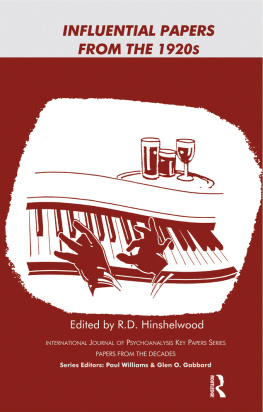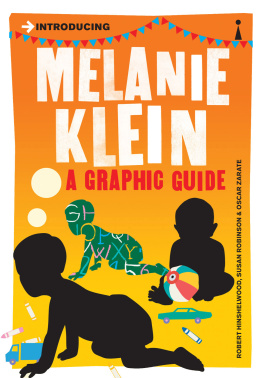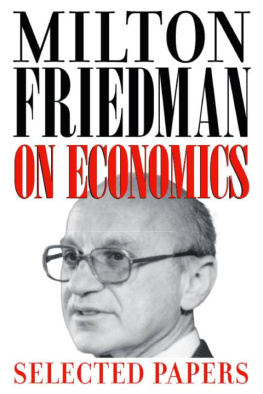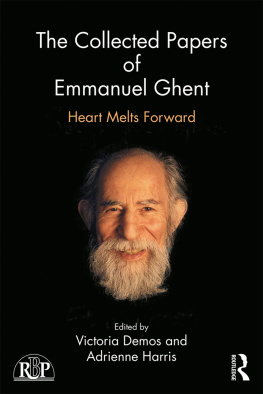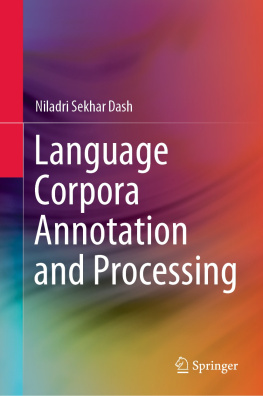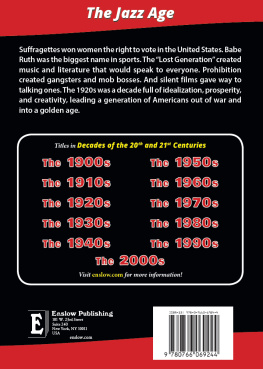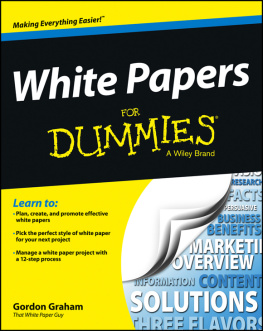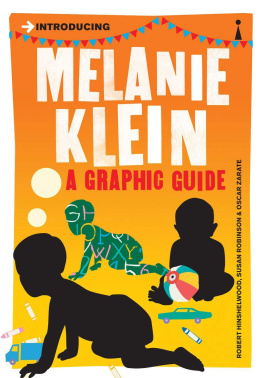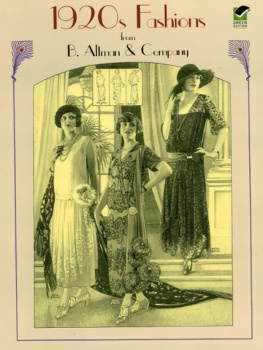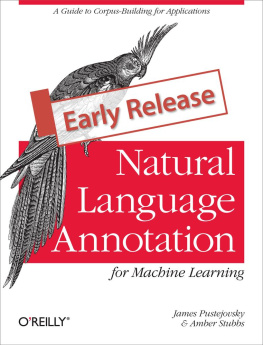Hinshelwood R. D. - Influential Papers From 1920s
Here you can read online Hinshelwood R. D. - Influential Papers From 1920s full text of the book (entire story) in english for free. Download pdf and epub, get meaning, cover and reviews about this ebook. City: London;Herndon, year: 2004, publisher: Routledge;Karnac Books, Stylus Publishing, LLC [distributor, genre: Children. Description of the work, (preface) as well as reviews are available. Best literature library LitArk.com created for fans of good reading and offers a wide selection of genres:
Romance novel
Science fiction
Adventure
Detective
Science
History
Home and family
Prose
Art
Politics
Computer
Non-fiction
Religion
Business
Children
Humor
Choose a favorite category and find really read worthwhile books. Enjoy immersion in the world of imagination, feel the emotions of the characters or learn something new for yourself, make an fascinating discovery.
- Book:Influential Papers From 1920s
- Author:
- Publisher:Routledge;Karnac Books, Stylus Publishing, LLC [distributor
- Genre:
- Year:2004
- City:London;Herndon
- Rating:3 / 5
- Favourites:Add to favourites
- Your mark:
- 60
- 1
- 2
- 3
- 4
- 5
Influential Papers From 1920s: summary, description and annotation
We offer to read an annotation, description, summary or preface (depends on what the author of the book "Influential Papers From 1920s" wrote himself). If you haven't found the necessary information about the book — write in the comments, we will try to find it.
Influential Papers From 1920s — read online for free the complete book (whole text) full work
Below is the text of the book, divided by pages. System saving the place of the last page read, allows you to conveniently read the book "Influential Papers From 1920s" online for free, without having to search again every time where you left off. Put a bookmark, and you can go to the page where you finished reading at any time.
Font size:
Interval:
Bookmark:

Influential Papers from the 1920s
PAPERS FROM THE DECADES IN INTERNATIONAL JOURNAL OF PSYCHOANALYSIS KEY PAPERS SERIES
Edited by R. D. Hinshelwood
International Journal of Psychoanalysis Key Papers Series
Series Editors: Paul Williams and Glen O. Gabbard

First published 2004 by Karnac Books Ltd.
Published 2018 by Routledge
2 Park Square, Milton Park, Abingdon, Oxon OX14 4RN
711 Third Avenue, New York, NY 10017, USA
Routledge is an imprint of the Taylor & Francis Group, an informa business
Arrangement, Introduction copyright 2004 Institute of Psychoanalysis; chapters 1-8 copyright 2004 Institute of Psychoanalysis, republished by permission of the International Journal of Psychoanalysis
The right of R D. Hinshelwood to be identified as the author of this work has been asserted in accordance with 77 and 78 of the Copyright Design and Patents Act 1988.
All rights reserved. No part of this book may be reprinted or reproduced or utilised in any form or by any electronic, mechanical, or other means, now known or hereafter invented, including photocopying and recording, or in any information storage or retrieval system, without permission in writing from the publishers.
Notice:
Product or corporate names may be trademarks or registered trademarks, and are used only for identification and explanation without intent to infringe.
British Library Cataloguing in Publication Data
A C.I.P. for this book is available from the British Library
ISBN 9781855753907 (pbk)
Edited, designed, and produced by The Studio Publishing Services Ltd, Exeter EX4 8JN
The International Journal of Psychoanalysis Key Papers Series
The IJP Key Papers series brings together the most important psychoanalytic papers in the Journals eighty-year history, in a series of accessible monographs. The idea behind the series is to approach the IJPs intellectual resource from a variety of perspectives in order to highlight important domains of psychoanalytic enquiry. It is hoped that these volumes will be of interest to psychoanalysts, students of the discipline and, in particular, to those who work and write from an interdisciplinary standpoint. The ways in which the papers in the monographs are grouped will vary: for example, a number of themed monographs will take as their subject important psychoanalytic topics, while others will stress interdisciplinary links (between neuroscience, anthropology, philosophy etc., and psychoanalysis). Still others will contain review essays on, for example, film and psychoanalysis, art and psychoanalysis and the worldwide IJP Internet Discussion Group, which debates important papers before they appear in the printed journal (cf. www.ijpa.org). The aim of all the monographs is to provide the reader with a substantive contribution of the highest quality that reflects the principal concerns of contemporary psychoanalysts and those with whom they are in dialogue. This volume is the second within the Key Papers series that identifies, reproduces, and discusses the most influential psychoanalytic papers produced in each decade since IJP began. By influential we mean papers that not only made an important individual contribution to psychoanalytic knowledge at the time, but also went on to influence the development of psychoanalytic thinking and concepts. The objective of this and future volumes in the decades collection will be to provide an overview of the development of psychoanalysis, as articulated through its principal scholarly journal.
We hope you will find this and all the Key Papers monographs rewarding and pleasurable to read.
Paul Williams and Glen O. Gabbard
Joint Editors-in-Chief,
International Journal of Psychoanalysis
London, 2004
R. D. Hinshelwood is a Member of the British Psychoanalytic Society, and a Fellow of the Royal College of Psychiatrists. He was previously Clinical Director of The Cassel Hospital and currently is Professor, Centre for Psychoanalytic Studies, University of Essex. He is the author of A Dictionary of Kleinian Thought (1989), and Clinical Klein (1995). He has written widely on therapeutic communities, and the psychoanalysis of organizations ( Thinking About Institutions (2001)); and published a book on psychoanalysis and ethics, Therapy or Coercion (1997).
R. D. Hinshelwood
The 1920s, the first decade of the journal, was a time of hope and dismay. The phenomenal violence of the First World War was slowly absorbed in Europe and a new realization of what human beings could do to each other was faced. The optimism was to resolve that it should never happen again, and Freud believed that psychoanalysis had a contribution to make to that resolve. In his paper (1919a) Lines of advance in psychoanalysis he pointed with some enthusiasm towards innovative developments in psychoanalysis itself.
Curiously, one powerful factor that supported optimism over psychoanalysis was the war. The huge haemorrhage of manpower due to war neurosisi.e. post-traumatic stress disorder (PTSD)led, after the war, in all European (and American) armies, to a search to understand the illness psychologically. At the time it was only psychoanalysis that could offer a credible theory of the condition and, therefore, a method of prevention (see, for instance, Ferenczi et al ., 1921). From this, psychoanalysis gained a lot of credit in some quarters, and was widely applied in the treatment and rehabilitation of soldiers. Over the years of the 1920s, the journal reviewed many papers and books on the topic. The topic of war neurosis was of great interest again at the time of the Second World War (see, for instance, Miller, 1940). Freuds reaction to the enormity of the social violence gave rise to at least one of his major texts Group psychology and the analysis of the ego (Freud, 1921c); and probably Beyond the pleasure principle (Freud, 1920g). Both these works serve as inspiration to much of what was published in the 1920s.
The backdrop of social changes and historical events are rarely addressed explicitly in these papers. The post-war poverty in Germany, and the plight of the working class in mid-decade in Britain, appear to go unmarked. Nor do the events of the developing Soviet regime in Russia warrant mention, despite their devastating effect on Russian psychoanalysts. This seeming neglect of social occurrences is, I presume, on the grounds that they are mere epiphenomena and that psychoanalysis is an investigation of the psychological underpinnings of any social phenomena, a view not necessarily shared by social scientists (see the debate between Malinowski, 1923, and Jones, 1925).
One of the enthusiastic new projects after the First World War was to found an English-language journal. Psychoanalysis had originated in Germany; and though a number of Freuds books had been translated and published in Britain and the United States in English, this new journal was a celebration of the spread of psychoanalysis to international dimensions. As Ernest Jones said in his editorial to the first volume:
It has long been evident that a periodical published mainly in German could not indefinitely subserve the function of an official international organ, and, since interest in Psycho-Analysis has extended from German-speaking countries to English-speaking countries far more than to any other, it was only a question of time when such a Journal as the present one would have to be founded: with the cessation of the war, the resumption of scientific activities, and the reestablishment of contact between different countries, that time may be judged to have now arrived. [Jones, 1920, p. 3]
Font size:
Interval:
Bookmark:
Similar books «Influential Papers From 1920s»
Look at similar books to Influential Papers From 1920s. We have selected literature similar in name and meaning in the hope of providing readers with more options to find new, interesting, not yet read works.
Discussion, reviews of the book Influential Papers From 1920s and just readers' own opinions. Leave your comments, write what you think about the work, its meaning or the main characters. Specify what exactly you liked and what you didn't like, and why you think so.

